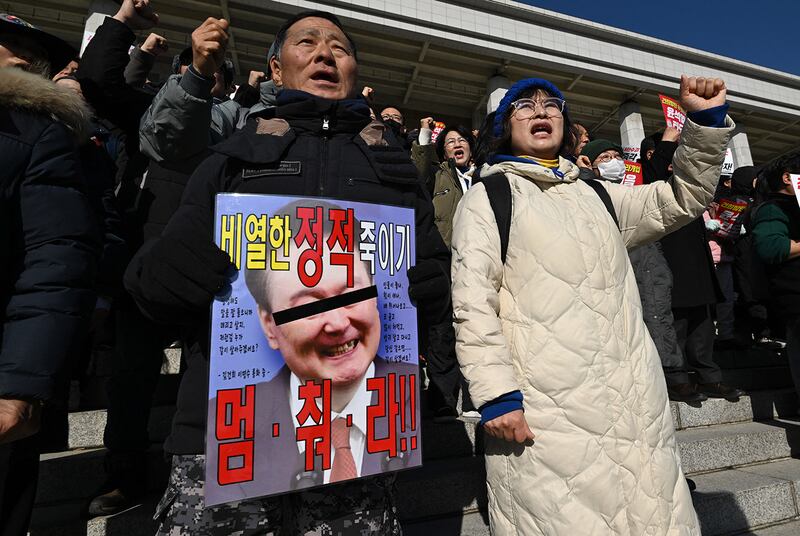Read a version of this story in Korean
North Korean officials working in China said they were shocked to learn that South Korea’s president declared martial law -- but even more shocked to learn that the National Assembly quickly overturned the order, saying such defiance would be “unthinkable” in North Korea.
“There would have been a bloodbath” if senior North Korean officials had similarly gone against supreme ruler Kim Jong Un, a trade official stationed in Dalian, China, who requested anonymity for safety reasons, told RFA Korean.
On Tuesday night, South Korean President Yoon Suk Yeol stunned his nation by declaring martial law on TV, citing “threats from North Korea” and “anti-state activities” by domestic political opponents -- claims that many said were groundless.
Within hours, the move was overturned by opposition lawmakers, who have since urged Yoon to resign and filed a motion to impeach him.
Such democratic checks and balances are a foreign concept in North Korea, the trade official said.

“I was especially moved to see that the resolution lifting martial law was passed in the assembly, and then the president himself announced to the people that he was lifting martial law,” he said, adding that other trade officials were similarly shocked.
‘What democracy is truly like’
North Korean state media has not broadcast any news about the crisis south of the border, so most North Koreans likely don’t know what happened since access to foreign news and media is blocked.
But trade officials sent to work in China have access to the internet and global news, so heard about tumultuous events in Seoul.
RELATED STORIES
South Korea’s president lifts martial law hours after declaring it
South Korean opposition files impeachment motion against Yoon
Fact Check: Does a photo show armored vehicles in Seoul after South Korea declared martial law?
A trade official in Donggang, China, contacted by RFA said he was surprised when he read the news on his cell phone.
The National Assembly’s defiance of Yoon made him “realize what democracy is truly like.”
He said he discussed with another trade official that countries like South Korea separate government power into legislative, executive, and judicial branches.
“In my country, the Highest Dignity is more powerful than the constitution," he said, using an honorific term to refer to Kim Jong Un.
Translated by Leejin J. Chung. Edited by Eugene Whong and Malcolm Foster.
